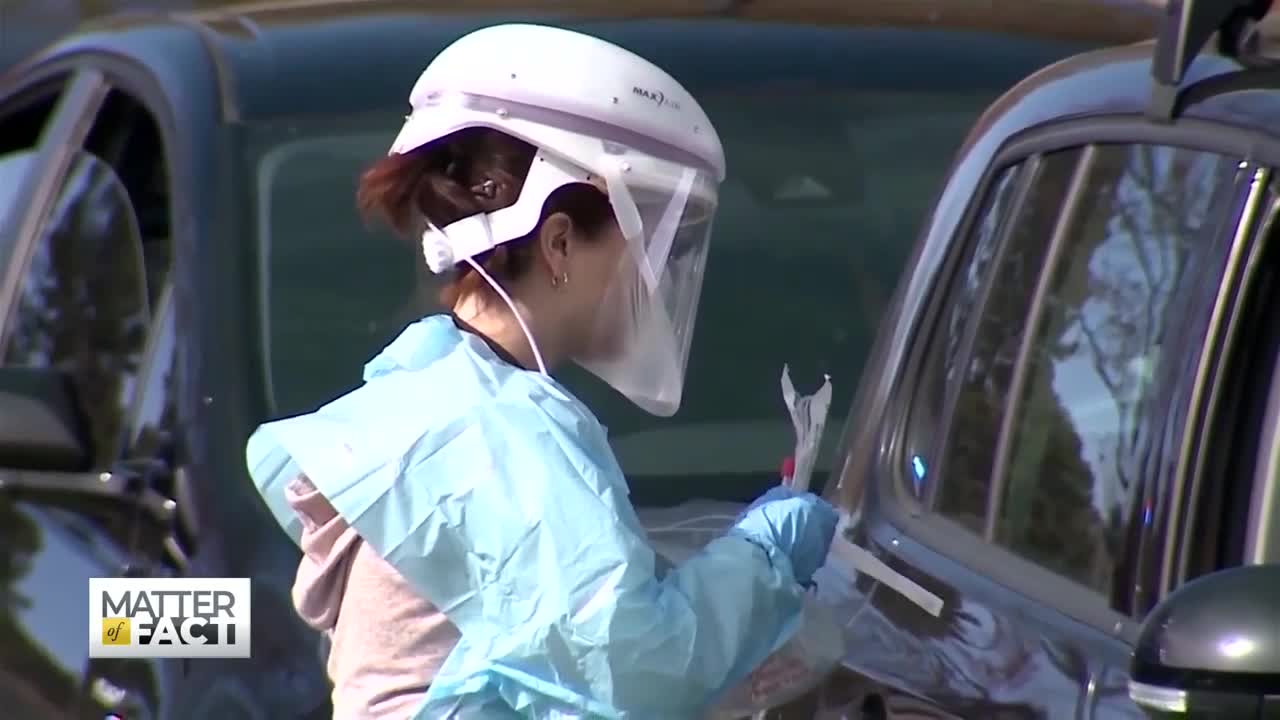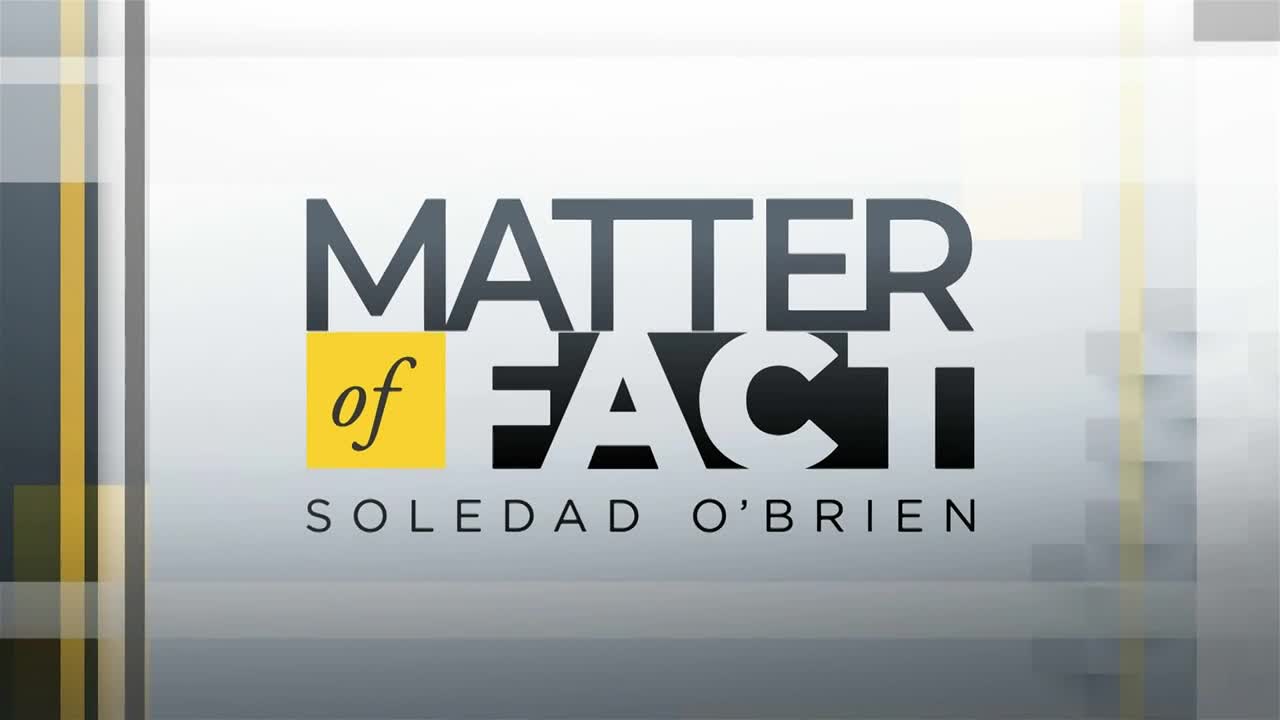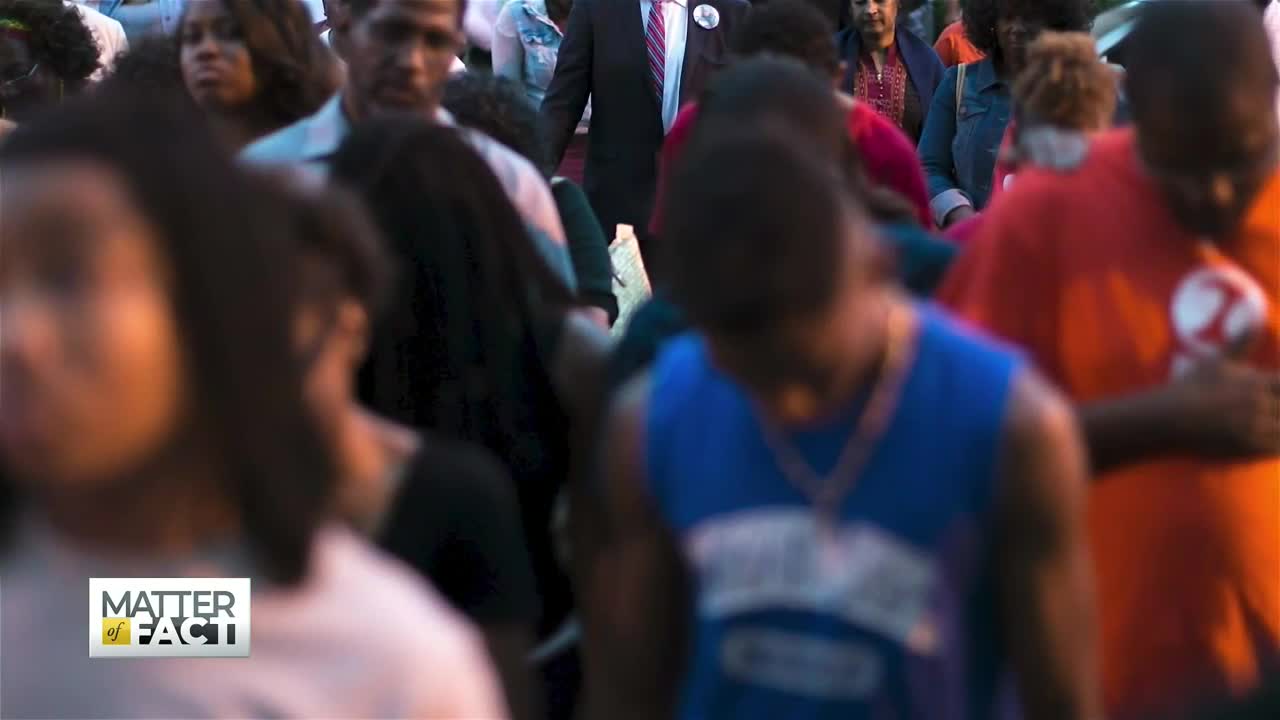
While much of the focus on the coronavirus pandemic in the U.S. has centered around our major cities, tribal lands could be even more vulnerable. Among them, the Navajo Nation has been hit the hardest. Home to about 175,000 people, the tribe has per capita infection rate surpassed only by New Jersey and New York. Dean Seneca is a member of the Seneca Nation and infectious disease expert who spent nearly 20 years as a senior health scientist for the CDC. Soledad O’Brien speaks with him about what is fueling the virus’ rapid spread through tribal lands.

As students across the country adjust to distance learning amid the coronavirus pandemic, some families are facing a much bigger challenge. Many special education students are now going without the speech, physical or occupational therapy they received at school. Correspondent Jessica Gomez speaks with parents who are struggling to make sure their children with learning disabilities don’t regress while away from the classroom.

Millions of Americans have now filed for unemployment for the fifth week in a row as thousands of businesses have been forced to close their doors amid the coronavirus pandemic. Now, some governors are beginning to reopen parts of their states in an effort to mitigate some of the financial fallout. Yet, infectious disease experts are warning both President Trump and state leaders to take it slow. Soledad O’Brien speaks to Dr. Tom Frieden, President/CEO of Resolve to Save Lives and the former Director of the CDC.

This Week on Matter of Fact, Special contributor Joie Chen takes us to Washington, DC, one of the most dangerous places in the U.S. to give birth, where some first-time parents are rethinking their delivery plans. Then, Soledad O’Brien speaks with Bryan Finney, founder of Democracy Live, about casting your ballot from your phone. Then, she speaks with Rev. Martin Montonye, from NYC Health and Hospitals/Bellevue, about how hospitals chaplains are still providing comfort from outside the patient’s room.

As the COVID-19 outbreak continues, health care facilities are working to curb the spread of the virus. Hospitals and clinics are restricting visitors and sometimes even leaving patients to spend their last moments alone under quarantine. Those restrictions also include hospital chaplains, long a source of comfort for hospice patients and grieving family members. Rev. Martin Montonye is the supervisor of the Clinical Pastoral Education at NYC Health and Hospitals. Soledad O’Brien spoke with him about how pastors are staying true to their mission from outside the hospital room.

While many states remain under stay-at-home orders, health experts warn the coronavirus could continue well into the fall. That could force U.S. election officials to grapple with following social distancing guidelines while holding our presidential election. Already, some states are pushing for mail-in only primaries. But should officials go even further? Soledad O’Brien speaks with Bryan Finney, founder and president of Democracy Live, a company that creates ballots you can submit with your phone.

This week on Matter of Fact, millions of students across the country rely on school lunches to be fed throughout the week. We take a look at an army of volunteers working to feed students in Milwaukee during the coronavirus pandemic. Plus, Soledad O’Brien speaks with Brian Castrucci, head of the de Beaumont Foundation, about the importance of funneling funding into the public health care system both during and after the crisis. Then, Soledad speaks with Dr. Leo Seoane from Ochsner Health, about the alarming disparity in infection and death rates among minorities.

As the United States continues to fight the coronavirus pandemic, some are dealing with a crisis within a crisis. Even before the pandemic, our nation’s capital was already one of the most dangerous places for a woman to give birth, especially black women. Special Contributor Joie Chen takes us to Washington, DC where some first-time parents are rethinking their delivery plans.

The coronavirus has turned the world on its head, upending plans for millions. That includes the class of 2020, many of whom will no longer be able to walk down the graduation aisle this year. But in the wake of this pandemic, some are stepping up. In our first installment of the “Class of 2020” we meet Emma Tschurwald, a fashion design student outfitting workers on the front line of the crisis.

As health experts work to better understand the coronavirus, a disturbing trend is emerging in the United States. COVID-19 is infecting and killing communities of color at alarming rates. Experts say that’s because minorities are more likely to have preexisting conditions. In Louisiana, African Americans make up 70 percent of coronavirus deaths but just 32 percent of the population. Soledad O’Brien speaks with Dr. Leo Seoane, the Chief Academic Officer at Ochsner Health in Louisiana, about their fight against COVID-19.